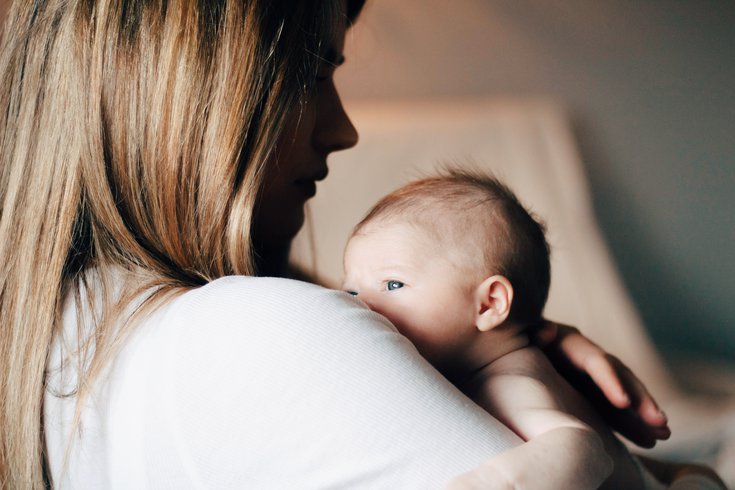
March 17, 2022
 Hollie Santos/Unsplash
Hollie Santos/Unsplash
One-third of the new mothers screened positive for postpartum depression and 20% had symptoms of major depression.
Rates of postpartum depression and major depressive symptoms among new mothers increased considerably in the U.S. during the COVID-19 pandemic, according to new data.
Pregnant and postpartum women are known to be at a higher risk for developing a severe COVID-19 infection. This can cause an increase in anxiety due to a concern about getting the disease and could lead to social and emotional consequences that negatively impact a mother's health.
Investigators from the University of Michigan's School of Nursing conducted the research to assess risk factors and rates of postpartum depression. The study included 670 participants who completed an online survey between February and July of 2020.
Findings showed that one-third of the new mothers screened positive for postpartum depression and 20% had symptoms of major depression.
According to the U.S. Centers for Disease Control and Prevention, 1 in 8 new mothers experienced postpartum depression and 5% to 7% had major depression prior to the pandemic.
"We also found that almost 1 in 5 participants who screened positive for postpartum depression reported having thoughts of harming themselves," said Clayton Shuman, assistant professor of nursing at Michigan and lead author of the study. "This is very concerning given that prior to the pandemic, [a previous study] found the rate of suicidality among prenatal and postpartum patients is on the rise in the U.S."
The researchers also discovered an association between postpartum depression and if a baby was fed formula, as well as how much time a baby spent in a neonatal intensive care unit.
The data showed that new mothers who fed their infants formula were 92% more likely to screen positive for postpartum depression and 73% more likely to screen for major depression, compared to those who breastfed or bottle-fed with their own milk.
Moms with infants in a NICU had a 74% higher risk of postpartum depression and those who were anxious about getting a COVID-19 infection were 71% more likely to screen positive for the condition.
Shuman emphasized the importance of screening new mothers for depression, but added that this is only the first step.
"Treatment is pivotal to recovery. Resources and education about postpartum depression must be better disseminated and implemented," he said. "These resources should be shared with the general public to reduce stigma, and shared with those who provide social and emotional support to postpartum patients, such as partners and family members."
The study was part of a larger project called COVID-19 MAMAS (Maternal Attachment, Mood, Ability, and Support), which collected data on pregnancy and postpartum experiences during the pandemic.